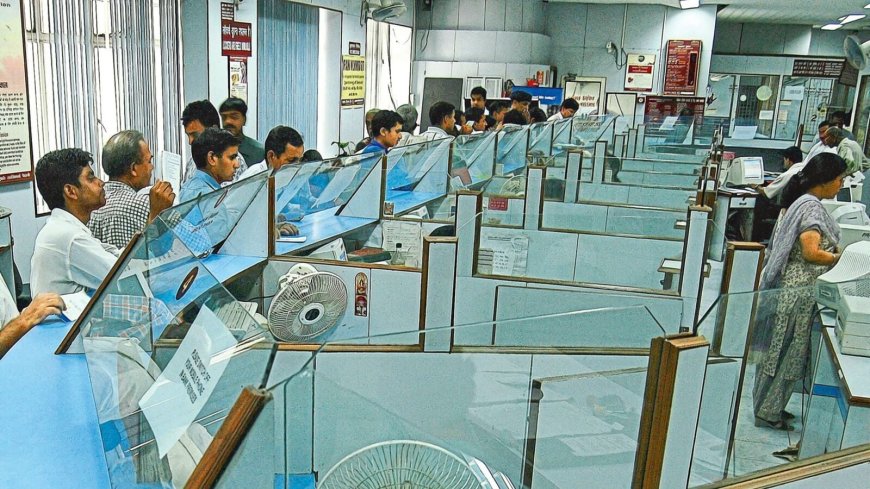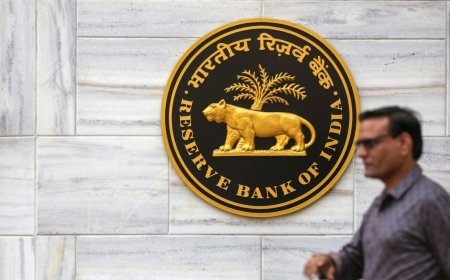Public sector banks may scrap minimum balance fines: These PSU banks have waived the penalty
Several public sector banks are removing penalties for non-maintenance of minimum balance to promote financial inclusion. Here's a list of banks that have waived the charges.

A Major Shift in Customer-Centric Banking
In a move that could significantly ease the financial burden on millions of account holders, several public sector banks (PSBs) in India are reportedly scrapping or reviewing penalties imposed for not maintaining minimum account balances. This step reflects a broader shift in the banking sector towards a more inclusive, customer-friendly approach, especially aimed at bringing the underbanked population into the formal financial fold.
While some major PSBs have already waived the minimum balance penalty, others are said to be in advanced stages of evaluating similar policy revisions. This development marks a turning point in the way public sector banks structure service charges on savings accounts.
Banks Leading the Way
As of July 2025, a few large PSBs have either fully removed or significantly relaxed penalties on minimum balance defaults. These include:
-
Punjab National Bank (PNB): PNB recently announced that it has waived charges related to non-maintenance of minimum balance in all savings accounts across metro, urban, semi-urban, and rural areas. This move is expected to benefit over 18 crore customers.
-
Union Bank of India: Union Bank has also eliminated the penalty for basic savings bank deposit (BSBD) accounts and simplified its account structure to remove hidden charges.
-
Bank of Maharashtra: The Pune-headquartered lender followed suit, particularly for accounts in rural and semi-urban areas, stating that financial inclusion and ease of banking are the core of their operations.
These changes come at a time when public sector banks are under increasing pressure to compete with private banks and fintech players offering zero-balance digital savings accounts.
The Financial Impact on Banks
Waiving minimum balance penalties may impact short-term fee income for PSBs. According to data from the Reserve Bank of India (RBI), public sector banks collectively earned over ₹1,000 crore annually from service charges related to minimum balance violations over the past five years. For instance, in FY2023 alone, SBI collected around ₹500 crore under this head.
However, analysts believe that the long-term gains in terms of customer loyalty, increased account activity, and broader financial inclusion outweigh the temporary revenue dip.
"The revenue loss from such charges is negligible compared to the potential long-term gains through deeper customer engagement and cross-selling opportunities," says Rupa Mehta, banking analyst at CapitalAxis Advisors.
RBI and Government’s Push for Financial Inclusion
The move also aligns with the Reserve Bank of India’s and Government of India’s broader financial inclusion initiatives. The Jan Dhan Yojana, launched in 2014, laid the foundation for zero-balance accounts. As of June 2025, over 51 crore Jan Dhan accounts have been opened with deposits crossing ₹2.25 lakh crore.
In recent years, regulators have nudged banks to simplify account structures, reduce hidden costs, and make banking more accessible for the economically weaker sections. The waiver of penalties on minimum balance maintenance is seen as a natural extension of these efforts.
How It Benefits Customers
Traditionally, PSBs imposed a penalty ranging between ₹10 to ₹500 plus GST for non-maintenance of minimum balance, depending on the location and type of account. For example, SBI had set a minimum balance requirement of ₹3,000 in metro cities and levied a charge if the average monthly balance fell below that threshold.
Now, with the removal of such fines, customers—especially in rural and semi-urban areas—are expected to benefit the most. It reduces the fear of being penalized for low balances and promotes regular usage of banking services.
"This is a customer-friendly step. Many people hesitate to use their accounts actively out of fear that they might lose money to penalties. Removing such fees empowers account holders," said Rajesh Kumar, former banker and financial literacy advocate.
Competitive Pressure from Private and Digital Banks
Private and digital banks have been aggressively acquiring customers through zero-balance accounts with no hidden charges. Neobanks and payment banks such as Paytm Payments Bank, Airtel Payments Bank, and Jio Payments Bank offer simple onboarding processes, zero-balance features, and app-based account management—attracting tech-savvy, younger customers.
To remain competitive, PSBs are now rethinking traditional models and embracing customer-friendly reforms, including free or minimal-fee services, better digital interfaces, and relaxed compliance burdens.
Investor Outlook: Strategic or Sentimental?
From an investor perspective, this development could be seen in two lights:
-
Short-Term Concerns: Fee income will likely decline, which could affect non-interest income metrics in the upcoming quarterly results. Analysts expect a modest 2-3% drop in service-related earnings for PSBs.
-
Long-Term Opportunity: On the other hand, improved customer acquisition and engagement could increase CASA (current and savings account) ratios, which are vital for low-cost funding. A larger deposit base, improved customer satisfaction, and wider adoption of banking services could improve operating leverage over time.
"PSBs are making a strategic pivot. By improving customer stickiness, they can drive higher transaction volumes, which ultimately supports fee-based income from other services such as insurance, mutual funds, and loans," explains Shilpa Desai, senior equity analyst at DynaMarkets.
What Lies Ahead?
As the trend gains momentum, more public sector banks are expected to join the waiver movement. State Bank of India (SBI), the country’s largest lender, has not made a formal announcement yet, but sources suggest internal discussions are underway.
In the coming quarters, a clearer picture will emerge as banks release updated account rules and revise their earnings forecasts. The move could also prompt private sector banks to follow suit in select account categories to maintain market share.
Final Word
The scrapping of minimum balance penalties by public sector banks marks a decisive move towards inclusive and empathetic banking. While it may seem like a small reform, its impact on the banking behavior of millions could be profound. With PSU banks embracing customer-first policies, India’s financial landscape is steadily transitioning towards broader accessibility and trust.
What's Your Reaction?
 Like
0
Like
0
 Dislike
0
Dislike
0
 Love
0
Love
0
 Funny
0
Funny
0
 Angry
0
Angry
0
 Sad
0
Sad
0
 Wow
0
Wow
0













































































